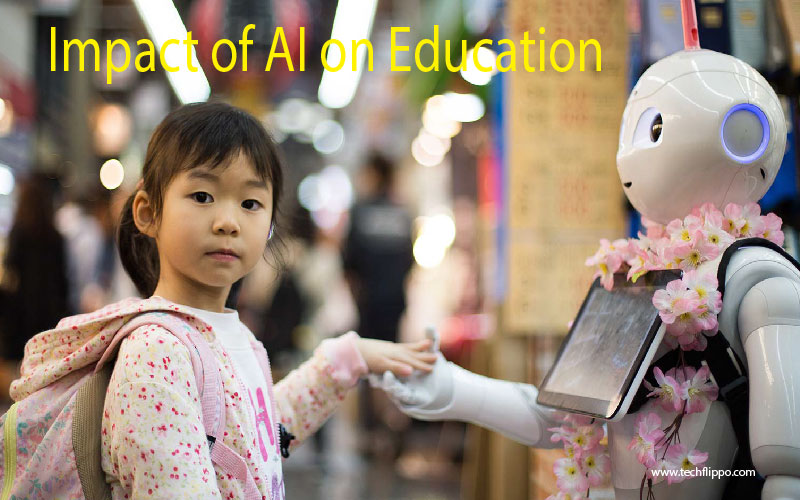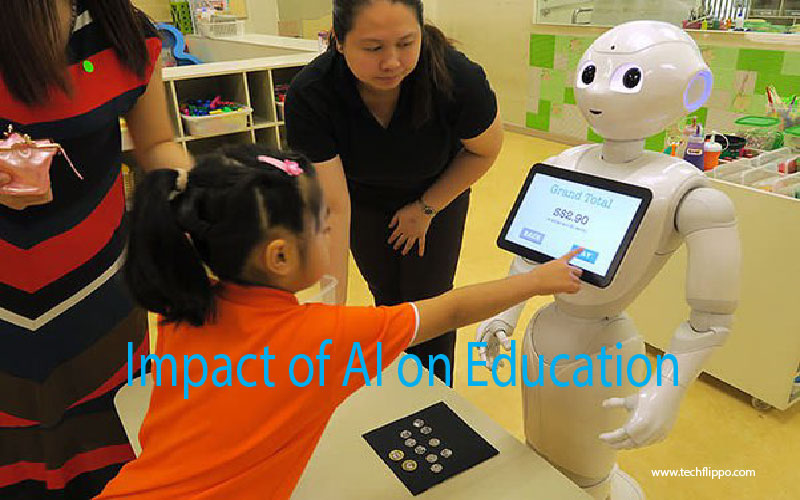The Impact of AI on Education
The world of education is on the brink of a revolution. With technology evolving at breakneck speed, artificial intelligence (AI) has emerged as a game changer in classrooms around the globe. Imagine personalized learning experiences tailored to each student’s unique needs or automated administrative tasks that free up teachers to focus on what they do best—teaching! The impact of AI on education is becoming increasingly profound, promising both exciting opportunities and complex challenges. As we explore this dynamic intersection between AI and education, we’ll uncover how it transforms teaching methods, enhances student engagement, and prepares future generations for an ever-changing landscape. Join us as we dive into this fascinating topic and unfold the layers surrounding the impact of AI on education!

Advantages of Using AI in the Classroom
AI brings a wealth of advantages to the classroom environment. One notable benefit is personalized learning. Each student has unique strengths and weaknesses, and AI can tailor educational experiences to meet individual needs effectively.
Additionally, AI assists teachers by automating administrative tasks. Grading assignments or managing schedules becomes less time-consuming, allowing educators to focus more on teaching and connecting with students.
Another significant advantage is immediate feedback. With AI-driven tools, learners receive instant assessments on their progress, helping them understand concepts better in real-time.
Moreover, accessibility improves significantly through AI technology. Students with disabilities can utilize specialized software that caters to their specific requirements.
Engagement levels rise when integrating interactive AI tools into lessons. Gamified learning experiences not only make education enjoyable but also encourage participation among students who might otherwise disengage from traditional methods.
Challenges and Concerns with AI in Education
The integration of AI in education isn’t without its pitfalls. One major concern is data privacy. As schools adopt advanced technologies, they collect vast amounts of student information. This raises questions about who owns that data and how it’s protected.
Another challenge lies in the potential for bias within AI algorithms. If these systems are trained on flawed datasets, they may perpetuate existing inequalities and stereotypes. That could negatively impact student learning experiences.
Additionally, reliance on technology can diminish critical thinking skills among students. When answers come easily through AI tools, there’s a risk that learners might not engage deeply with the material.
Teachers also face hurdles adapting to new tech-driven curricula. Professional development becomes essential but often lacks adequate support or resources for effective implementation across diverse educational settings.
How AI is Transforming Teaching Methods
AI is reshaping teaching methods in remarkable ways. Educators now utilize intelligent tutoring systems that adapt to individual student needs. These tools provide personalized learning experiences, helping students grasp concepts at their own pace.
Teachers can analyze vast amounts of data generated by AI platforms. This analysis reveals insights into student performance, highlighting areas where additional support may be required. Such targeted interventions enhance overall learning outcomes.
Moreover, AI-powered lesson planning tools assist educators in creating engaging and relevant content. They suggest resources and activities tailored to specific topics or grade levels, streamlining the preparation process.
Virtual classrooms have also emerged as a significant trend due to AI technologies. Students can participate from anywhere while still receiving a high-quality education through interactive lessons and real-time feedback.
As these innovations continue to evolve, they promise an even more dynamic classroom experience for both teachers and students alike.

Examples of Successful Implementation of AI in Schools
Many schools are harnessing the power of AI to enhance learning experiences. For instance, Georgia State University implemented an AI chatbot named Pounce. This virtual assistant helps students navigate enrollment and course selection, significantly reducing dropout rates.
In another example, the Los Angeles Unified School District introduced an AI-driven analytics platform. This system identifies at-risk students by analyzing data trends, allowing teachers to intervene early and provide personalized support.
Additionally, in Singapore, the Smart Learning Initiative uses adaptive learning technologies. These tools tailor educational content to meet each student’s unique needs while tracking their progress in real-time.
The integration of these systems shows promise for improving engagement and academic performance across diverse student populations. As educators embrace technology like AI, innovative teaching methods emerge that cater more effectively to individual learners’ strengths and challenges.
The Future of Education and AI
The future of education is undeniably intertwined with artificial intelligence. As technology evolves, so do the opportunities for personalized learning experiences. Students will engage with resources tailored to their unique needs and pace.
AI can help identify a learner’s strengths and weaknesses in real time. This means teachers can focus on what matters most—supporting students where they need it most.
Moreover, administrative tasks could be streamlined using AI tools, allowing educators more time to foster meaningful interactions with learners.
Imagine classrooms powered by data-driven insights that enhance curriculum design and student engagement. The possibilities are vast.
As we look ahead, the role of AI in education will continue to expand, transforming traditional methods into innovative solutions that cater to an increasingly diverse student population.
Conclusion: Embracing the Benefits of AI while Addressing its Limitations in Education
The integration of AI into education presents a unique opportunity to enhance learning and teaching experiences. As we explore the impact of AI on education, it becomes clear that this technology can personalize learning paths, automate administrative tasks, and provide valuable insights through data analysis. Schools harnessing these benefits are leading the charge in creating more engaging classrooms.
However, as with any advancement, there are challenges at play. Concerns about data privacy, equity in access to technology, and potential job displacement for educators cannot be ignored. Striking a balance between leveraging AI’s capabilities and addressing its limitations is crucial for fostering an inclusive educational environment.
Looking ahead, adapting to the evolving landscape means embracing innovation while remaining vigilant about ethical considerations. By collaborating with educators and policymakers alike, we can ensure that AI serves as a tool for empowerment rather than exclusion.
Education stands on the brink of transformation thanks to artificial intelligence. With thoughtful implementation guided by empathy and understanding, we can enrich student experiences while preparing them for a future intertwined with technology. The journey ahead calls for awareness of both opportunities and responsibilities in shaping tomorrow’s learners.